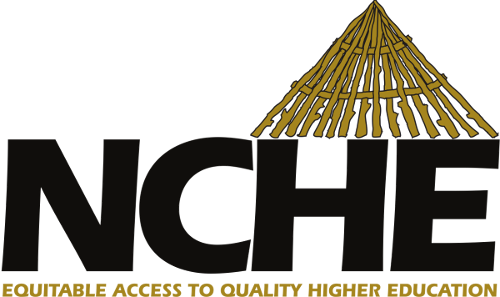The National Council for Higher Education (NCHE) was established to promote a coordinated higher education system, enhance students' access to higher education and ensure quality higher education, as well advice on the allocation of funds to public Higher education Institutions.
As an oversight body responsible for higher education we espouse equitable educational opportunities starting from early childhood and continuing throughout life.
It is, therefore, expected that the NCHE plays an important role with regard to the governance and financial management as well as to seek a balance between quality, equity, efficiency and effectiveness in the higher education system.
Above all, the NCHE is expected to set the trend in contributing valuable knowledge about the latest thinking on higher education.
As a body responsible for higher education, we are also convinced that higher education institutions can play a crucial role in human capital development and innovation systems which are the pre-requisite to achieve our long term national objective –Vision 2030 which calls for an industrialised and knowledge-based society.
There is no doubt that in this globalised economy, education is the engine for growth and development.
It is, therefore, incumbent upon the NCHE to ensure collaboration between industry and higher education institutions to warrant that graduates upon completion have skills that are responsive and relevant to the market demand.
Through collaboration, industry and academia are expected to work hand in hand to develop future employees who are well versed in recent trends in the job market in order to drive growth and development.
Of course, we have to acknowledge that higher education institutions will always face a number of constraints and difficulties, but with the government of the day which has resolved to make education the leading sector in national budget allocation, we foresee light at the end of the tunnel.
It is also expected that higher education institutions' graduates in their different capacities, share noble ideas and suggest possible solutions to problems that affect our society instead of assuming the position of "fence-sitters" and expect government to do everything.
It is said that higher education is no longer a mere public service but also a public good.
In conclusion, it is important to look at the relevance of the feasibility study for the international Assessment of Higher Education Learning Outcomes (AHELO) which posed the following questions:
- What do we know about the outcomes of higher education?
- What can policy makers do to improve access, quality and value for money in higher education?
- What can higher education institutions do to improve governance, financing and partnership?
Therefore, for higher education to succeed, we need to blend forward looking politicians and academics.

